Do sugar gliders bite? This is a question that many people ask when considering getting a pet glider. Or maybe your critter just bit you and you are wondering, is it normal?
Pet gliders bite for many reasons, including fear, defense, or aggression. However, gliders do not typically bite humans unless they feel threatened or scared.
In this blog post, I discuss the potential for a pet glider to bite and what you can do to prevent your pet glider from biting.
Table of Contents
Why Do Sugar Gliders Bite? 4 Reasons!
Sugar gliders have razor-sharp teeth and they can definitely give you a good nip if they’re upset or trying to defend themselves.
However, sugar gliders aren’t aggressive animals and they’re not likely to go out of their way to bite someone
While gliders are generally gentle and social animals, they can bite if they feel threatened or scared.
If you’ve ever been on the receiving end of a sugar glider bite, you know that these little creatures can pack a powerful punch!
So, why do sugar gliders bite? Here are some possible reasons:
1- They’re Scared
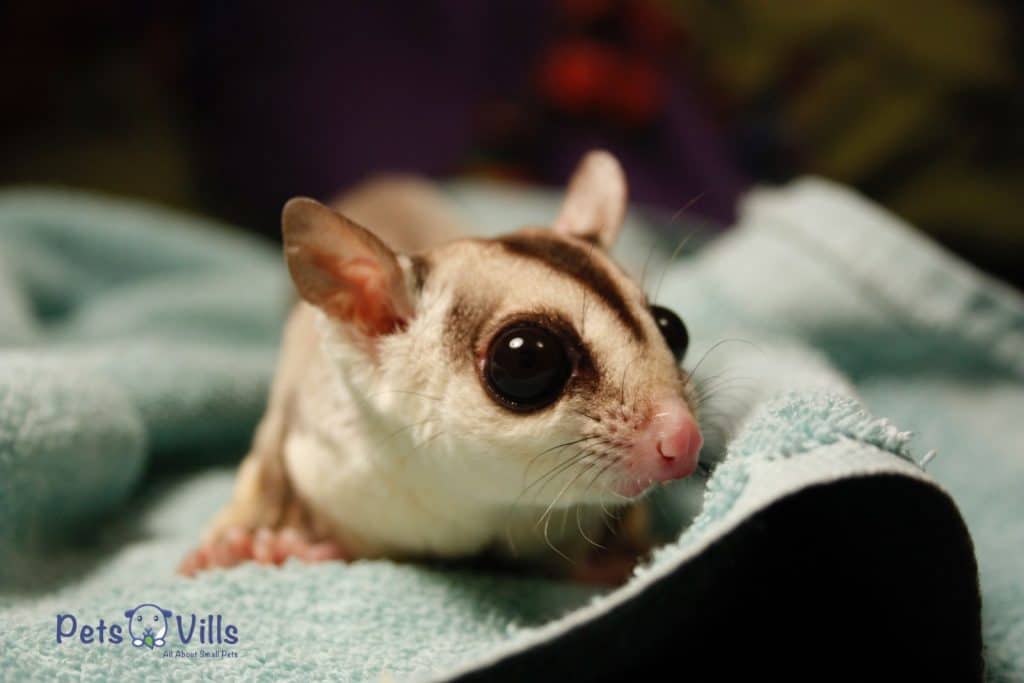
Gliders are naturally timid animals and will often bite out of fear.
If you’ve just brought home a new sugar glider, they may be feeling scared and overwhelmed in their new environment.
You see, these critters typically bond by scent and can be quite territorial. As a result, introducing them to a new home and family can be a stressful experience.
Because there are no familiar scents or people in the new settings, they may feel the need to protect themselves and will resort to biting as a way to do so.
So what should you do when this happens?
The obvious reaction would be to give them time to adjust and get used to their new home before handling them too much.
However, this won’t get you and your glider to a place of trust. The best thing to do is build trust, and you can only do this through handling.
Therefore, you’ll need to be extra careful and take things slowly. Start by simply offering your glider a finger to sniff.
Let them come to you on their own terms and offer treats as encouragement. Then, once they’re comfortable with you, you can start slowly petting them.
Your pet glider will learn to trust you and won’t bite with time and patience.
2- Your Pet Glider is Testing You or Showing Affection
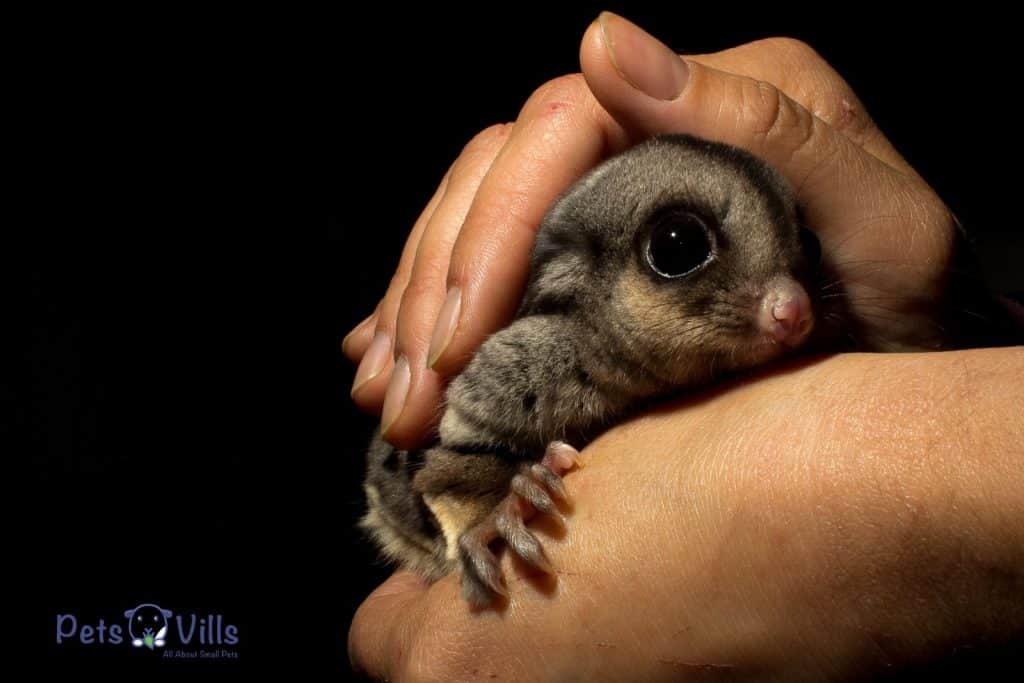
You were patient, handled your pet glider with care, and finally overcame the biting phase. But all of a sudden, your pet glider starts biting you again out of the blue.
What gives?
I know how frustrating this can be, but there are a few reasons why your pet glider might start biting you again even after they’ve bonded with you.
One possibility is that they’re going through puberty. There’s a phenomenon often referred to as “teenage nippiness in the pet glider community.”
This is when your pet glider, who was once sweet and cuddly, suddenly starts biting for no apparent reason.
They might bite you when you try to pick them up or even out of the blue while holding them.
The good news is that this phase doesn’t last forever, and they’ll eventually grow out of it.
However, it can be difficult to differentiate between “teenage nippiness” and affection since gliders also nibble on their owners as a sign of love.
So if you’re not sure whether your glider is biting out of affection or aggression, it’s best to err on the side of caution and consult with a veterinarian or experienced sugar glider owner.
3- They Don’t Recognize Your Scent
Why is my sugar glider barking and biting all of a sudden?
One common reason gliders bark and bite is that they don’t recognize your scent.
If you’ve been gone for a while or haven’t been handling them as much, they may not remember who you are.
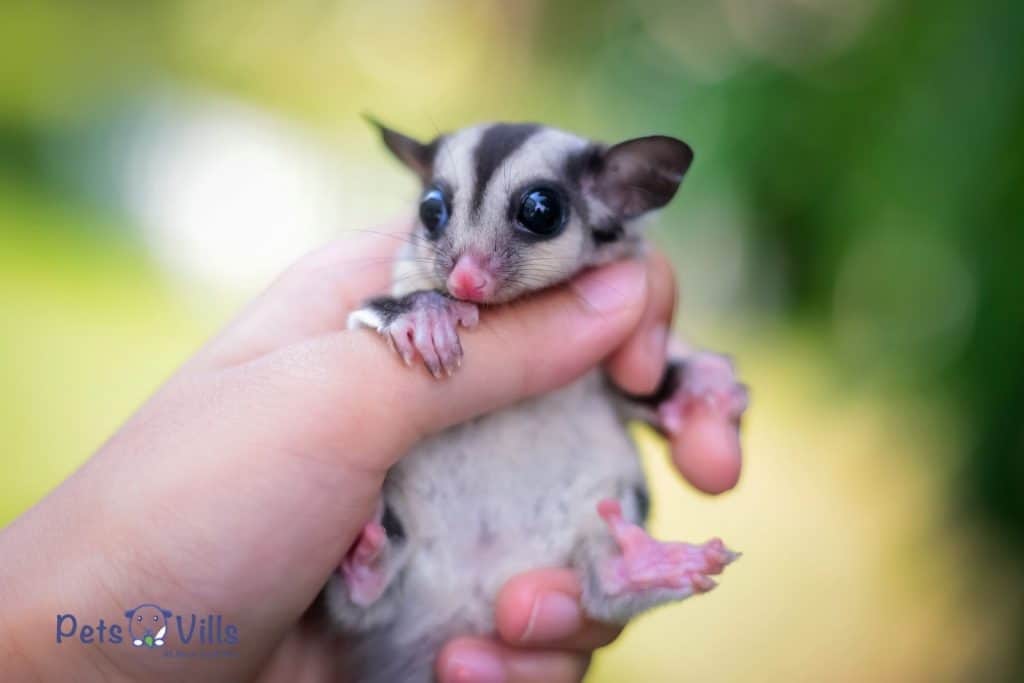
In these cases, it’s important to give them some time to get used to your scent.
In addition, try to stay consistent with your handling and give them plenty of time to get to know you again.
It’s also crucial to maintain the same scent when handling them. This means using the same soap, lotion, and perfume/cologne every time.
Doing this will help them quickly recognize your scent and feel comfortable in your presence again.
4- Aggressiveness
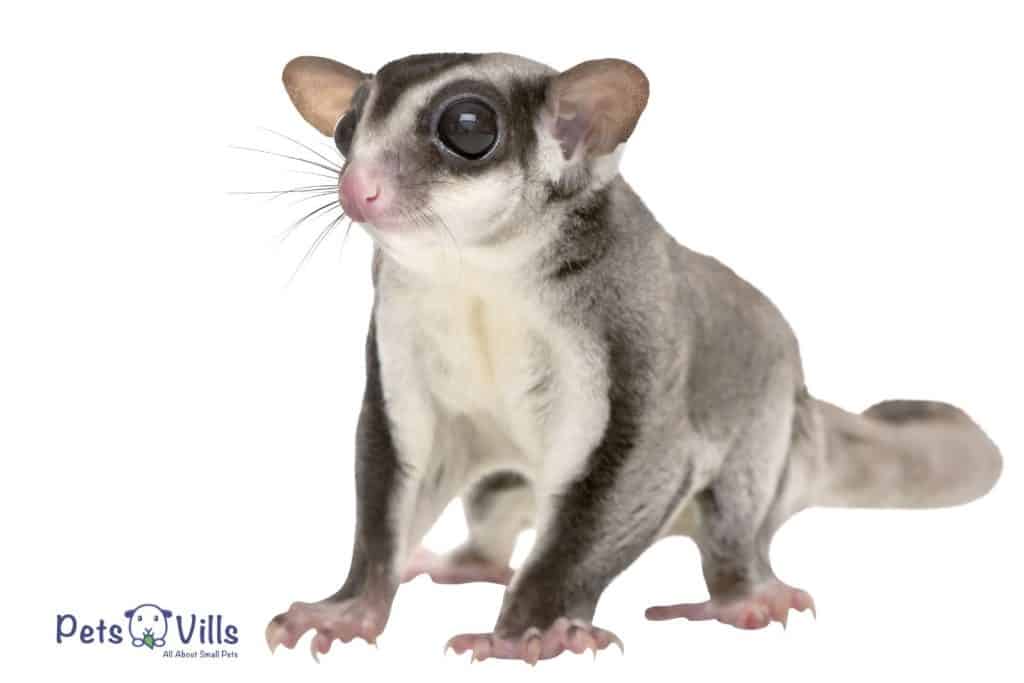
While aggressiveness isn’t typically a trait associated with pet gliders, there are some situations in which they may become aggressive.
For example, if adult sugar gliders feel threatened or are trying to protect their territory, they may lash out.
However, it can be difficult to differentiate between aggression and fear since these two emotions often manifest in similar ways.
If you’re unsure whether or not your sugar glider is acting aggressively, it’s always best to examine their reaction and type of biting.
For instance, if you open the glider’s cage and it immediately hisses and bares its teeth, this is likely an aggressive response.
However, if the sugar glider slowly approaches you with its body low to the ground and teeth exposed, this is more likely a fearful reaction and not a defensive bite.
So, what should you do if your glider is aggressive?
The steps are no different from how you’d handle a scared glider. However, you may need to be extra careful since an aggressive glider is more likely to bite.
First, try to identify the source of the aggression. For example, is your glider afraid of being handled?
Are they territorial over their cage or a particular toy? Could they be suffering from sugar glider cage sickness?
Once you know what’s causing the aggression, you can take steps to address it.
Also, note that it may take longer for an aggressive glider to warm up to you. So be patient and take things slow.
What Happens If a Sugar Glider Bites You and What to Do About
Are sugar gliders’ bites dangerous? If you’re unlucky enough to get bitten by a sugar glider, don’t worry.
The good news is that their bites are not poisonous and usually not deep enough to cause serious damage.
But do sugar glider bites hurt? Is it strong?
In his book, Sugar Gliders! The Ultimate Owner’s Guide, David Oc says (1):
One of the best things about a sugar glider is that its teeth are not designed to tear off skin or meat. Instead, a sugar glider’s teeth are designed to act as miniature clamps. When a sugar glider bites you, you feel more of a pinching force than a real bite.
However, if a sugar glider bites you because it feels threatened or is acting out of aggression, the bite can be quite painful.
That said, according to Long Island Bird & Exotic Pet Clinic (2), this is only common among untrained and insufficiently bonded pet gliders.
What You Should Do If Your Pet Glider Bites You
So, how do you deal with this sugar glider behavior?
While your first instinct may be to pull away or swat at the sugar glider, this will only aggravate the situation.
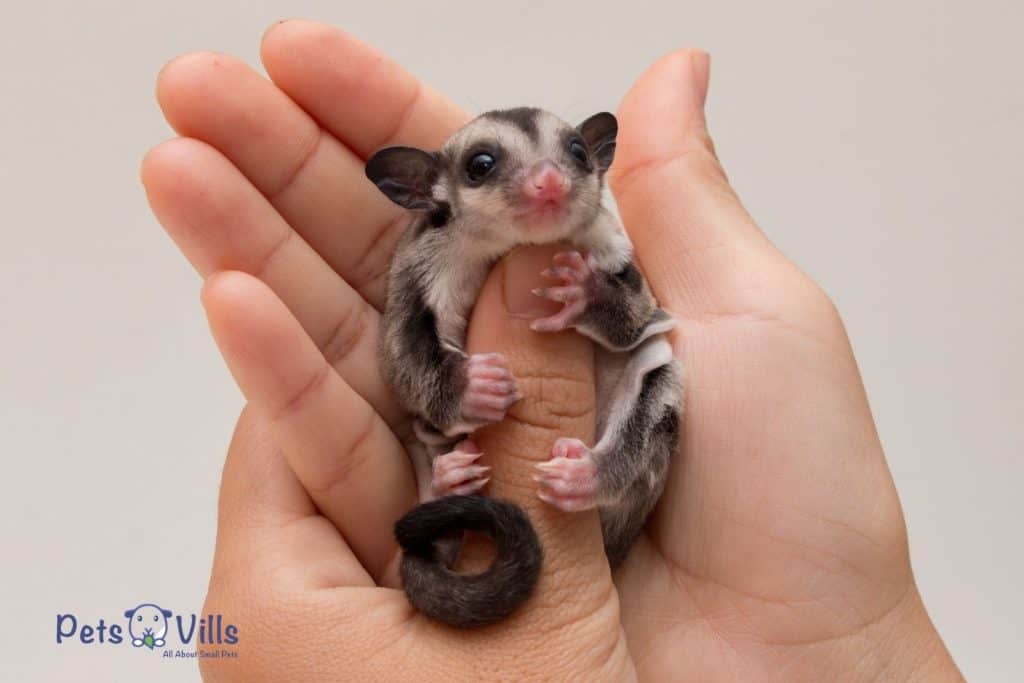
The best thing you can do is remain calm and still until the sugar glider releases you from its grip. Doing this informs the glider that its actions do not have the desired effect and that you pose no threat.
After the sugar glider has released you, give it some time to calm down before trying to interact with it again.
Afterward, check the area to see if the glider left a wound. If the animal bite left a break in the skin, you will need to clean and disinfect the area.
Gliders are prone to bacteria and other infections, so it’s important to take this step seriously.
If the bite is more serious, you need to consult a doctor or veterinarian.
READ MORE: Do Sugar Gliders Carry Diseases?
How To Avoid & Stop Sugar Glider From Biting
Why does my sugar glider bite me, and how can I stop it?
Gliders are wild animals, and as such, they have certain instincts that are hardwired into their brains.
One of those instincts is to bite when they feel threatened.
You can do a few things to avoid getting bitten by your sugar glider. These include:
- Avoiding sudden movements and disturbing your pet glider: When you move too quickly or make loud noises around your sugar glider, it can startle them and cause them to feel threatened.
- Establishing trust and bonding with your glider: The more bonded and trusting your relationship is with your sugar glider, the less likely they are to bite you.
- Not being too restrictive when holding them: If you hold your sugar glider too tightly, it can make them feel trapped and stressed, which may lead to biting.
If you follow these tips, you should be able to avoid getting bitten by your sugar glider.
How to Get a Sugar Glider to Stop Biting
What if, despite your best efforts, your sugar glider still bites you?
There are a few things you can do to get them to stop:
- Give the glider time to trust you: If you just got your sugar glider, they may need some time to get used to you and build trust. Be patient and give them time.
- Use positive reinforcement: Whenever your sugar glider does something good, such as not biting, give them a treat or praise them. This will help teach them that good behavior is rewarded.
- Feed the glider: Sometimes, pet gliders bite because they’re hungry. So make sure to feed them a nutritious diet and give them plenty of food and water.
- Provide entertainment: Bored gliders may start biting out of boredom. Provide them with toys and activities to keep them occupied.
If you’ve tried everything and your sugar glider is still biting, it may be a medical issue. Therefore, talk to a vet to see if there’s anything else you can do.
Do Sugar Gliders Bite Other Animals?
If you’re planning to adopt several gliders, you may be wondering, “do sugar gliders bite each other?”
The answer is yes. They certainly can. Gliders live in colonies of up to 30 members in the wild. They groom each other and sleep together in what’s called a “puppy pile.”
Therefore, if you see them nibbling on each other, it’s perfectly normal behavior. It’s their way of showing affection.
However, if the biting becomes excessive, it could signify that something is wrong.
For instance, the glider may be feeling stressed. This could be due to a change in its environment, such as adding a new pet or baby to the home.
If you think your pet glider is biting too much, take it to the vet to see if there’s anything else you can do.
FAQs
Are Sugar Gliders Friendly?
Gliders are extremely social creatures. In the wild, they live in colonies of up to 20 individuals. They are also very affectionate with their owners and enjoy spending time with them.
How Often Do Sugar Gliders Bite?
This exotic animal is a natural sap sucker. This means that they will use their mouths to explore their environment. Therefore, you’ll notice frequent bites when hand feeding them.
Wrapping Up
If you were asking, “do sugar gliders bite?” now you know.
These little critters bite when they’re stressed, scared, testing you, or showing affection.
Therefore, it’s crucial to provide a safe and stress-free environment for your pet sugar gliders. This includes handling them gently and regularly, so they get used to you.
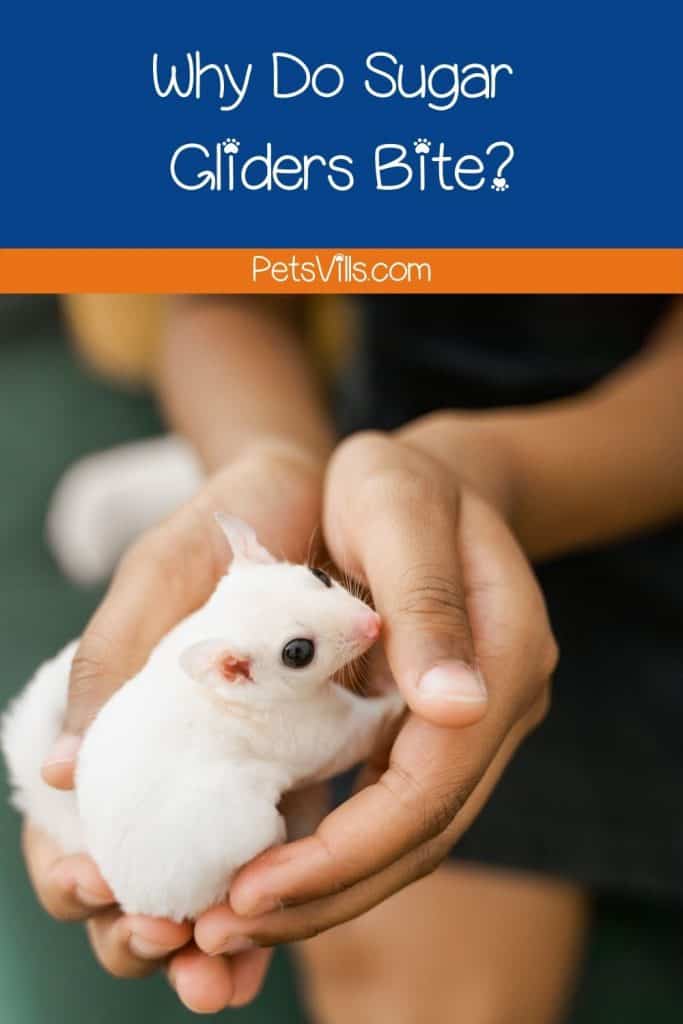
Does your sugar glider bite? Please share below!
References
- 1. Sugar Gliders!! The Ultimate Owner’s Guide [Internet]. Google Books. David Oc; [cited 2022 May 26]. Available from: https://books.google.co.ke/books?hl=en&lr=&id=DLEDTEhLmGgC&oi=fnd&pg=PT5&dq=sugar+glider+bite+care&ots=hOzQsspHBh&sig=JRGbaYnyjSfoq6prZkgJa5PIES4&redir_esc=y#v=onepage&q=sugar%20glider%20bite%20care&f=false
- 2. Sugar Glider Care Guide | Long Island Exotic Pet Vet [Internet]. libirdexoticsvet. [cited 2022 May 26]. Available from: https://www.birdexoticsvet.com/sugar-glider-care-guide#:~:text=Unlike%20rodent%20teeth%2C%20sugar%20gliders
Barry Stingmore is a British content writer living in Fuerteventura, Spain. An animal lover at heart, he shares his home with a dog and four rescue cats and has a passion for writing about animals big and small.
Barry loves finding answers to your animal-related questions, the more research involved the better! You can rely on him to find the facts.
Find him on FACEBOOK, TWITTER AND Linkedin
Read his latest ARTICLES.
Find more about him HERE.

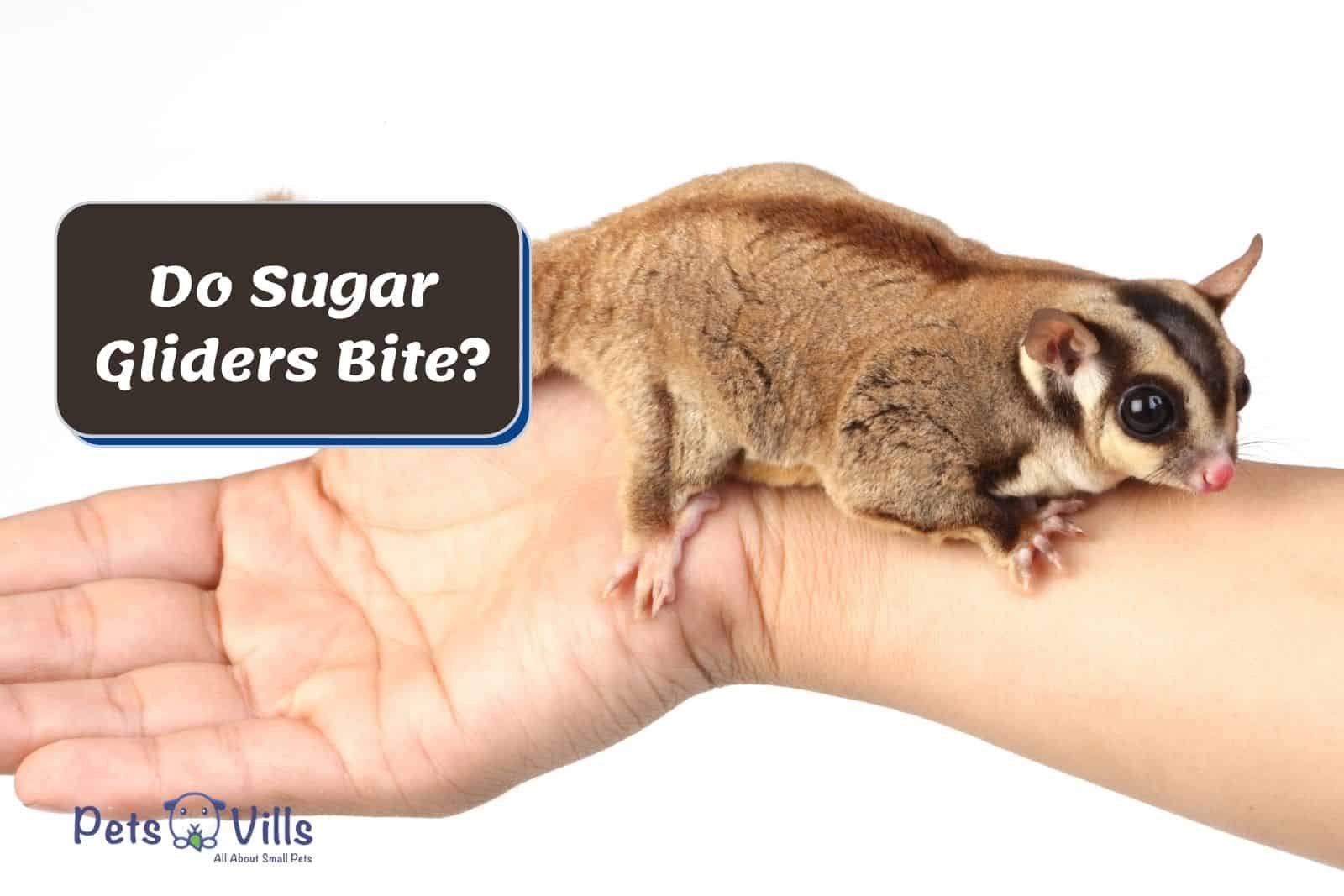


![Cute Sugar Glider Drinking From The Bottle [Must-Watch Video]](https://petsvills.com/wp-content/uploads/2022/09/Cute-Sugar-Glider-Drinking-From-The-Bottle-Must-Watch-Video-211x150.jpg)
